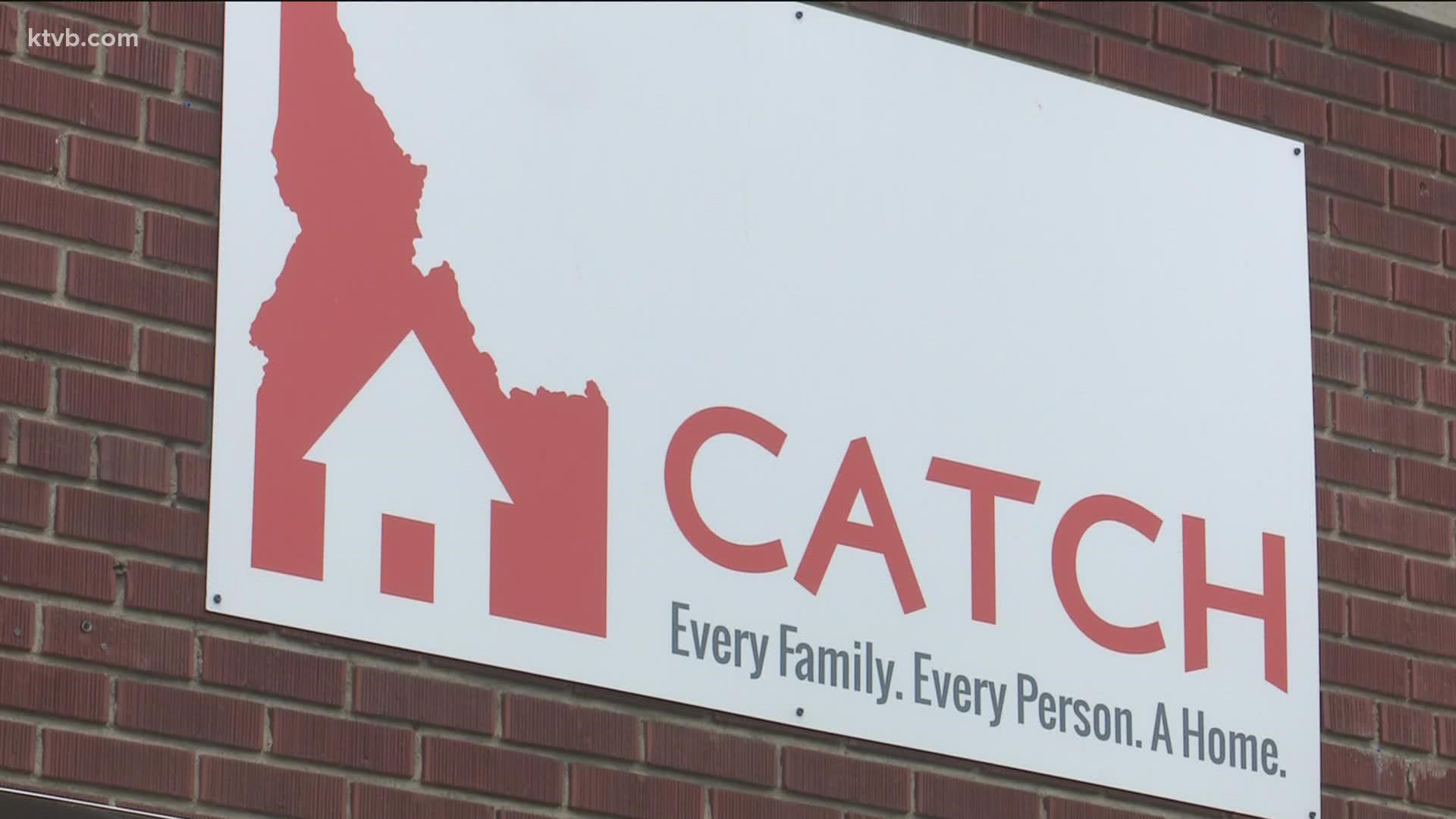BOISE, Idaho — People fighting homelessness often find themselves picking between two options where either decision produces a negative outcome, according to housing-first nonprofit CATCH.
"Do I stay in a relationship that's unhealthy so I have financial support, or do I leave and lose that financial support?" said Garrett Kalt, CATCH Director of Development. "These are questions our clients are facing daily."
CATCH calls dilemmas like these a "Catch-22," a phrase made famous by the Joseph Heller novel of the same name.
It's a play on words. The non-profit is using the phrase to front a month-long awareness campaign bringing attention to these very issues.
In January, CATCH housed 7 families and 30 individuals experiencing homelessnes in the Treasure Valley. The CATCH 22 campaign aims to provide funding to house 22 additional families in 2022. On average, CATCH houses 75+ families a year and the cost of each family to be housed in their program is $7,500 according to Kalt.
"Poverty causes short-term thinking," CATCH Executive Director Stephanie Day said. "That is absorbing all of their attention, and they don't have the space to think about lots of other things."
Heather Ziegel and her daughter Sierra know the experience of a Catch-22 all too well. Bouncing between homeless shelters, Heather was somewhere between paying her car bill or paying insurance.
And that's just one example of the tough decisions she had to make daily.
"There's probably too many to sit and think about," Heather said.
Kalt said CATCH clients often come from generational poverty. It's an experience that applies to Heather, too.
She found herself battling a drug addiction by the time she was 19. Not much else was on her mind at the time.
"I did," Heather said. "And sometimes you need to cut out people that are bad for you. I literally stopped talking to everybody that wasn't good for my life."
Bad relationships -- that's a theme observed at CATCH.
"We were surprised that 100% of the single mothers that came into our program experienced serious trauma," Day said.
Heather never had a place of her own, and she never had what she'd consider a good job. Pulling herself put of a generational cycle was a mountain that felt impossible to climb on her own.
That's becoming normal in the Treasure Valley, Day said. Previously, people on CATCH's waitlist would sometimes resolve their bout with homelessness on their own by the time the non-profit could contact them.
That almost never happens these days.
"They would find their own housing. They would move in with family and figure out a plan and not need us anymore. We call that self-resolution. And that's what's changed," Day said. "We don’t have very many households that can [get out of homelessness] without our help."
Heather waited for months by the time she got help.
CATCH addressed Heather's Catch-22. Removing a financial burden opened the door for Heather to focus on smaller parts of her life.
The pieces snapped into place.
Heather has been clean for three years. She is safely housed with her daughter. She is financially independent. She works in fiber optics.
"I'm doing all of it on my own now," Heather said. "I didn't even know how to write a check. Now, I'm writing checks to pay for my rent."
And all she needed was hand up. In this case, a little help finding a way through her Catch-22.
"This is a cause worth investing in, and the CATCH-22 program is a tangible solution folks can do to be part of the way we can end homelessness in the Treasure Valley," Kalt said.
More than 80% of families initially housed by CATCH are still stably housed a year later, according to Kalt.
CATCH leans on donations to provide services that help people like Heather and Sierra. They encourage anyone interested in supporting their mission to offer a donation.
Watch more Local News:
See the latest news from around the Treasure Valley and the Gem State in our YouTube playlist:

